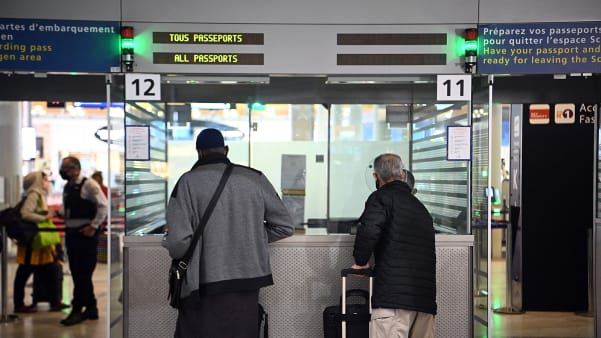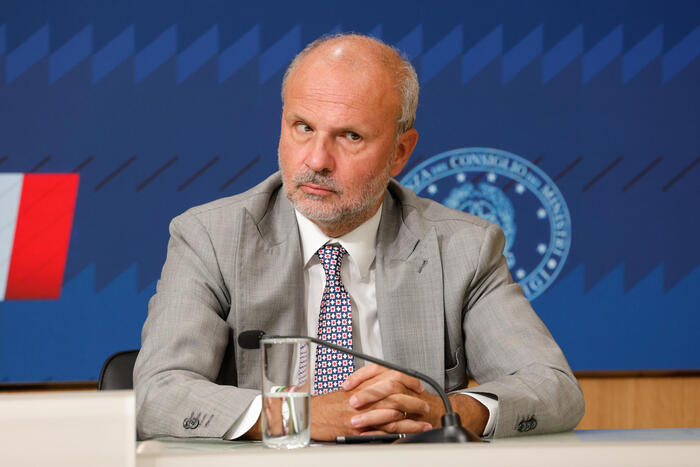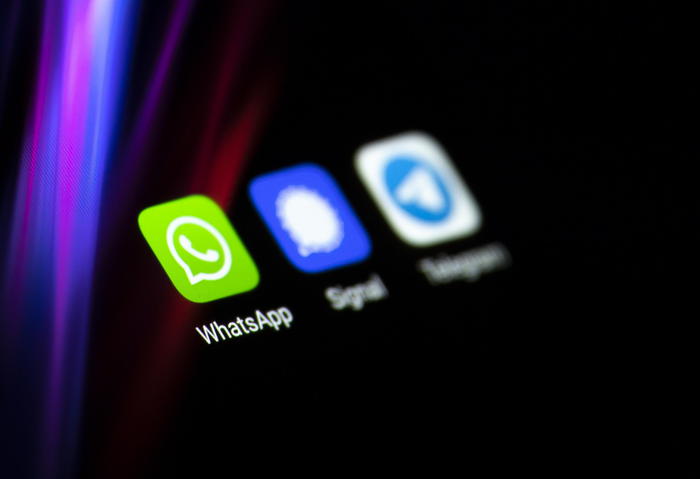Health certificate: who will be able to circulate in Europe?
1:21
(CNN) -
What will travel be like in the near future is the question on everyone's lips, and as Europe begins to reopen its borders to travelers from outside the continent, the European Union has announced the launch of its Covid Digital Certificate, configured to allow freedom of movement in the block.
Already, nine countries are using the scheme to issue certificates, with more expected to join before the scheme is officially launched on July 1.
The European Parliament voted overwhelmingly to approve the scheme on June 9.
"The EU will be in time to reopen this summer," Internal Market Commissioner Thierry Breton said in a statement.
So who is eligible for the certificate and how is it obtained?
This is what you need to know.
What is it?
This is what will hopefully open up travel within Europe this summer and ease the pressure on travelers from taking multiple tests.
Currently, if you travel between two EU countries you will have to comply with each of their individual entry rules, which could mean daily tests if you are driving or taking the train across the continent.
advertising
The certificate, however, will record three things: the holder's vaccination record, negative tests, or a record of previous infection, which should make travel easier.
It will be valid in all EU member states, plus Iceland, Liechtenstein and Norway.
And in Switzerland it also seems likely.
Is it the same as the EU covid vaccine passport?
Yes, it is the EU plan to travel within the bloc.
Also known as 'immunity pass' or 'health pass', although the EU Covid Digital Certificate is the official (and softer) name.
Is it a digital or paper certificate?
That will depend on the owner;
you can choose either one.
Both will contain a "digitally signed QR code" that can be scanned upon entering a country.
It will be in the national language of the issuing country and in English.
Member states have agreed on a common design.
How does it work?
Each issuing body has been assigned a digital signature, which is embedded in the QR code.
Border personnel will scan the QR code to view the data, although no personal data will be seen - nor the holder's personal data that countries use to verify signatures.
When it starts?
The scheme officially begins on July 1, and member states can receive an additional six weeks if they need it.
However, with European countries competing for visitors, it seems doubtful that there are any laggards.
In fact, nine member states are already issuing certificates.
Note that the European Parliament has yet to vote on the plan to make it law, but it is expected to be approved by a large majority.
The plan has been in the planning process since March and was tentatively agreed on May 20.
The EU gateway, or EU Gateway, went live on June 1 and allows certificates to be verified across borders.
What countries are using it?
As of June 8, there are nine registered EU member states: Bulgaria, Croatia, Czech Republic, Denmark, Germany, Greece, Lithuania, Poland and Spain.
He hopes others will join in before long: Countries that depend on tourism are trying to attract tourists before their rivals.
Already 22 countries have successfully tested the gateway, according to the European Commission.
Travel to Spain: Who can enter?
Is your vaccine among those approved for travel?
What certificate must you present?
Who is eligible?
A Fiumicino airport employee displays a portable "Smart-Helmet" thermal scanner to screen passengers and staff for COVID-19 on May 5, 2020 at Rome's Fiumicino Airport.
ANDREAS SOLARO / AFP / AFP via Getty Images
EU citizens and their families, and legal residents, according to the official word so far, are eligible.
However, an EU spokesperson told CNN that the bloc hopes to open the scheme to non-citizens, including Americans.
Access will depend on the individual countries that provide certificates to their visitors.
More information is expected to be released before the official launch on July 1.
The UK is reported to have also been in negotiations.
Travelers from the UK are not yet exempted from the EU-wide restrictions, due to the Delta variant of covid-19, which was first found in India and is now dominant in the UK.
The EU has also said it is "working to ensure that certificates can be compatible with systems in other countries", for holders traveling outside the bloc.
Do I need to get vaccinated to receive it?
No. The certificate will also store recent covid-19 recovery, as well as negative test results, including flow laterals and PCR.
Travel is back, just like travel scams
Do I need to be fully vaccinated?
Not necessarily: the certificate will record whether you have received one or two doses.
It is up to each member state to decide if the certificate is acceptable with just one dose.
Does the vaccine I received affect the certificate?
Yes. Only vaccines approved for use in the EU count, so Sinovac or Sputnik V, for example, would not count.
At least, that's the rule of the whole block;
individual countries can modify the rules.
Currently, the EU has approved vaccines from AstraZeneca, Pfizer / BioNTech, Moderna and Johnson & Johnson.
How many people already have the Covid Digital Certificate?
More than a million people had already signed up as of Tuesday, according to the European Commission.
Is there a charge for it?
It's not free.
Make sure you get it through the official channels;
without a doubt, fake sites are already being created to get your payment certificate.
The EU has also promised that certificates will be easily obtainable.
How do I get the certificate?
Each country will issue its own certificates, either through a portal, through health authorities or in testing centers.
Expect more information to be announced closer to launch.
Tourism reopening: France, Spain and other countries prepare to receive international travelers
Can I definitely move around freely with it, or are there additional country-specific restrictions?
The EU has said that holders "in principle should be exempt from restrictions on free movement" and called on member states "to refrain from imposing additional restrictions" on holders "unless they are necessary and proportionate to safeguard health. public ”, for example if a new variant causes concern.
States wishing to apply new restrictions must justify their decision to the EU authorities.
Travelers show their documents to a border police officer at the immigration desk at Charles-de-Gaulle International Airport on February 1, 2021. Christophe Archambault / AFP / Getty Images
Of course, that doesn't stop them from imposing additional restrictions on those who don't have the certificates.
Are countries operating their own schemes?
Each country will execute its own plan, under the umbrella of the European plan.
And some are already more open to tourism than their neighbors: Italy and Greece are already open to Americans, for example.
The Greek island of Mykonos says it is ready to party like before the covid-19
I need an application?
It is probable.
The EU is not producing a single app;
countries must solve their own system.
How safe is the Covid Digital Certificate?
The EU says that the information stored in the QR codes of the certificates can be verified "without the processing of personal data."
Although the certificate itself contains data including name, date of birth, and vaccination / recovery dates, this is not seen when verified or stored in other states.
Only the valid digital signature will be verified.
Covid-19








